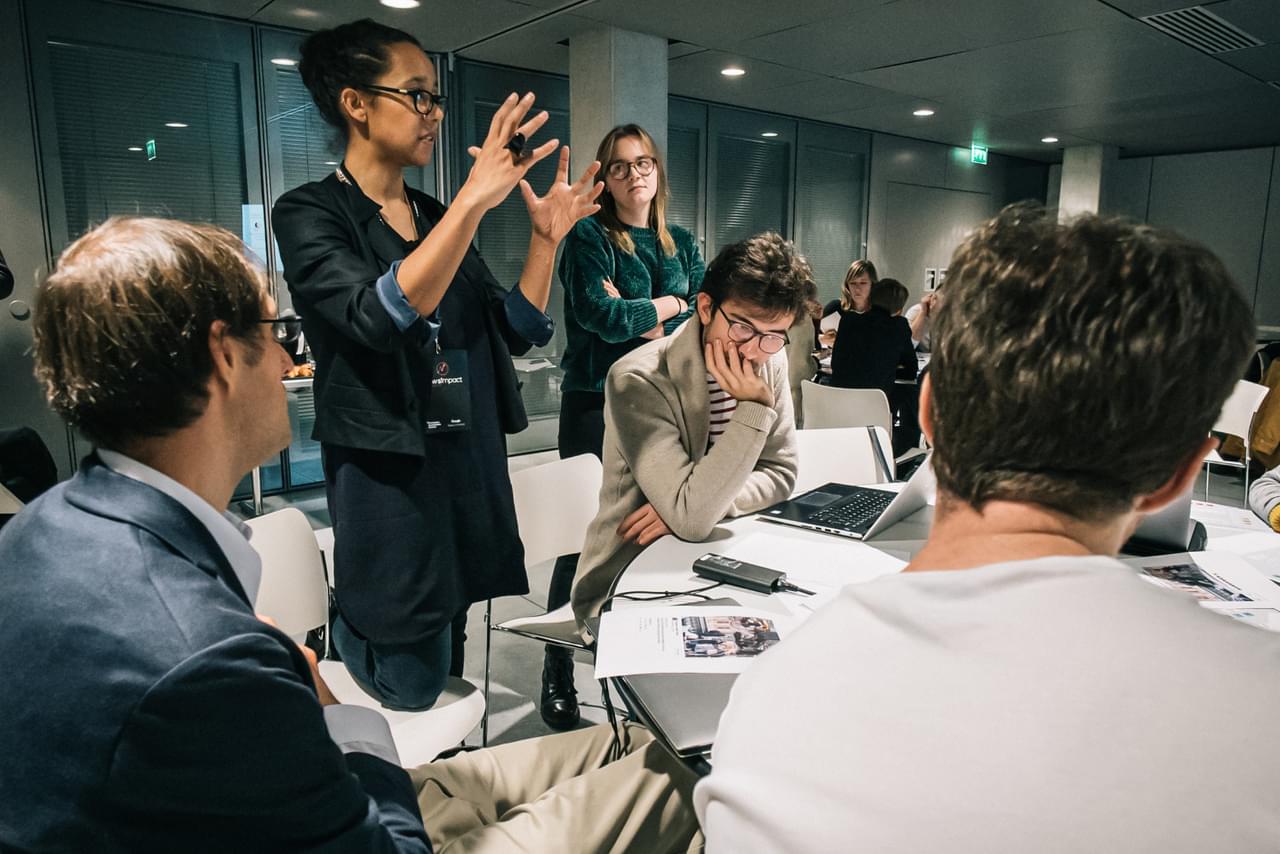Programme


Democratising data
Data journalism thrived in 2020, due to the wide array of effective data visualisations produced by newsrooms covering the COVID-19 outbreak. Data journalists worked with health specialists, scientists, and health reporters to translate complex datasets into more visual, interactive maps and charts for citizens to better understand the flood of information they were exposed to.
At "Democratising data: Making data a tool of effective journalism" we'll discuss how data visualisation goes beyond the numbers and ends up affecting public debate and democracy. We’ll explore how new user interfaces and data gathering technologies are contributing to an increased public understanding of news stories. We'll explore issues around public trust as they relate to technologies like artificial intelligence and deepfakes. With the German election coming in September and the French elections next year, what lessons have we learned from the U.S 2020 election to avoid a mass spreading of distorted data?
Please make a contribution today
Your support will help us continue providing the kinds of opportunities journalists tell us they rely on
Would you like to have a direct conversation about making a donation? Please get in touch.
Programme
Speaker
Xaquín González Veira, co-founder of the Visualization for Transparency Foundation will present examples of innovative data visualisation projects from the past year.
Speaker
The Guardian’s visual storytelling and data literacy in 2020
Over the past year, data has become more important than ever in helping us understand the news. The Covid crisis has driven newsrooms to produce increasingly innovative, compelling and clear data visualisations for their audiences
Niko Komenda, Visuals Projector Editor at The Guardian, will highlight some of the Guardian’s most ambitious visual projects from 2020 and discuss how readers’ understanding of data and its graphical representation has changed since the start of the Covid-19 pandemic
Data as a tool for transparency: Where does European national public spending go?
Data journalist Adriana Homolova worked with the Organized Crime and Corruption Reporting Project (OCCRP) on collecting and analysing European COVID-19 public tender data. Along with media partners in 37 countries, Adriana and her colleagues collected 21 billion euros worth of tender data from 37 countries.This data gives an unprecedented view of just what Europe’s governments have been spending their billions on — and where things may have gone astray.
Adriana will share with us the outcome of her data investigative project: Europe's Spending Spree Unmasked project.
Speaker
Xaquín González Veira in conversation with Niko Komenda and Ada Homolova. The speakers will explain more in detail their work, talk about the future about dataviz and they’ll answer your questions! Write them in the YouTube chat and we’ll ask them on your behalf during the live-streaming!
Speaker
There is a growing technological arms race in the world of data journalism. Deep fake technology is becoming an increasingly effective tool for those seeking to disseminate mis- and disinformation.
In this panel discussion, we will explore how data journalists can take on the challenges presented by AI and deep fakes.
We’ll be joined by Sam Gregory, a deep fake expert with a focus on emerging technologies like AI, and their intersection with media manipulation and rising authoritarianism. Maria Amelie will share her insights, through her work as both a data journalist and co-founder of Factiverse, a computer software company that has developed technology that automates detection of fake news with cutting-edge AI. Glyn Mottershead, Senior Lecturer in Data Journalism at the City University of London will break down how educators and students can adapt to these growing challenges.
Panel moderated by Tara Kelly, Data editor for EJC's DataJournalism.com
Speaker
Gamification of data: How play can make news stories more accessible
Could video games become a tool used by newsrooms to draw attention to news stories and educate audiences? The gamification of news coverage is allowing some journalists a unique way to help their audiences better understand the news they're consuming.
Sarah Slobin, graphics and visual journalist at Reuters, will share with us some examples of the dataviz produced by the Reuters graphics team and explain how gamification can make a topic more accessible. Sara will explore in detail the Reuters graphics project"What will it be when we go back to the office?"
Data sonification: Bringing data to the ears
Although The Economist has been visualising data in tables and charts for 170 years, the launch in 2019 of “The Intelligence”, a new daily podcast, gave them the opportunity to bring data to the ears of their listeners for the first time.
Alex Selby-Boothroyd will share The Economist’s experiments with sonifying gender-paygap data and, more recently, the race to vaccinate the world.
Speaker
EJC'S Deputy Director Lars Boering in conversation with Sarah and Alex. The speakers will explain more in detail their work, talk about the future of dataviz and will answer your questions! Write them in the YouTube chat and we’ll ask them on your behalf during the live-streaming.
Speaker
The influx of information over the past year, together with a lack of knowledge of how to read data has led to a rapid spread of misinformation. Amidst the noise, many have selectively used data to entrench existing beliefs and assumptions, contributing to broad social divisions and the further rise of populist movements. These developments point to the need for journalists to harness this data and present it to a public that can see the realities of their society, rather than an agenda-driven distortion of it.
Tara Kelly, data editor at DataJournalism.com will interview The New York Times' Haeyoun Park, who will discuss her experience covering the 2020 presidential election as well as the fallout from the Capitol riot in January. Haeyoun will share with us how The New York Times covered these issues through data and visual stories.
What lessons can we learn in Europe from Haeyoun's experience?
Benedict Witzenberger, data journalist at Süddeutsche Zeitung, will be part of this conversation bringing the German perspective. Benedict will tell us how they can use data to overcome hate speech, right-wing nationalism and COVID-19 misinformation when the German national elections are happening this September 2021.
Speaker
Through a London School of Economics Journalism AI collaboration, The AIJO project - representatives from eight major news organisations across the world - have together explored how to leverage the power of AI to address this question.
In our panel on data journalism and diversity, equity and inclusion (DEI), we’ll be joined by Delfina Arambillet of LA NACION in Argentina and Aurore Malval of Nice-Matin in France. Their project takes a deep look at the process of creating news and experiments with AI that can identify gender representation in our texts and images.
Speaker
This course will introduce you to the potential of machine learning and help you reflect on how you can use it responsibly to enhance your journalism. Caroline Scott, Google News Lab, will also talk you through the situations when machine learning is the right tool to support your reporting so you can get started today
















